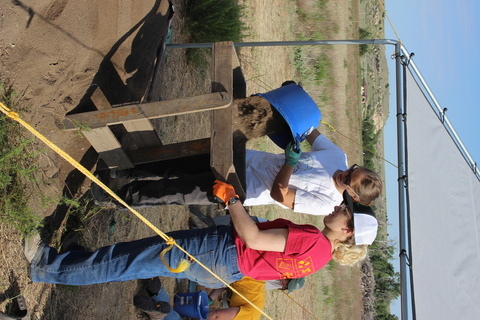By Emily Delgado
A scene of the great outdoors will greet Matt Hill, associate professor in the Department of Anthropology, and his group of students when they enter Lake Scott State Park in western Kansas this summer for their four-week study of the Ancestral Apache.
The upcoming summer semester will be the second year Hill will lead this course. The Department of Anthropology is housed in the College of Liberal Arts and Sciences.

“This course is a part of critical training techniques for our students to help them learn how to navigate the world of archaeology,” Hill said.
Field Research in Archaeology, aims to provide students with a hands-on learning experience and expose them to a new way of looking at archaeology that they can’t experience inside the classroom.
Students will spend time at a site in Lake Scott State Park dating back to AD 1680 and 1760. The site was occupied by a dynamic community of local Plains Apache people and Pueblo migrants who migrated from northern New Mexico, according to the course description.
Students will build on skills learned in the classroom, such as site mapping techniques using GPS, photography, artifact identification, and full-scale excavation.
This course is unique because it builds on other courses taught in the department but with hands-on experience, Hill added.
“We can teach past cultures and peoples, we can teach classes about artifacts and material items, but what is really difficult to teach during the normal academic year is how do you go into the field and how do you collect information through excavation or survey or things like that,” Hill said.
Students will be living in stone cabins, cooking, and spending the whole day in the field together — a great team building experience, Hill said.
“During the down time there's often music and everybody's talking, and it’s a very fun experience,” Hill said. "In a lot of cases, people don't know each other before they get there, so people make friends and find relationships that they would never have. It's a very social atmosphere.”
At the end of the four-week program, Hill wants his students to not just learn new skills but understand the excitement and importance behind participating in fieldwork.
“I want them to get that hands on experience and see the difficulties and excitement of doing fieldwork, and hopefully, it will make what they talk about in class make a little more sense,” Hill said. “Many of these students have never been camping. They've never spent time outdoors. I want them to just experiences to nature, a different place, and culture.”